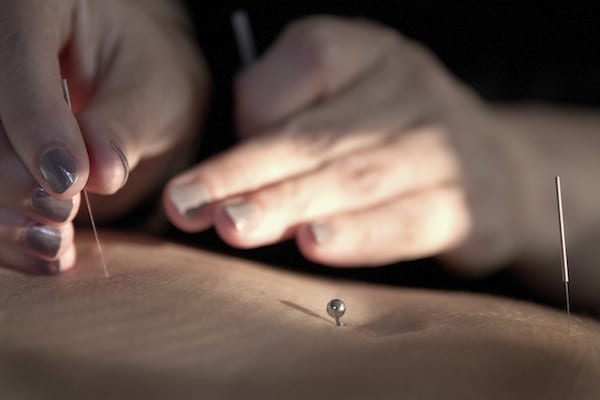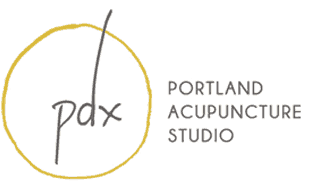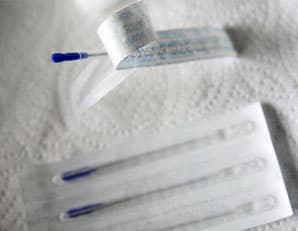
by Lee Hullender Rubin, DAOM, LAc
Acupuncture is but one treatment modality within the system of East Asian Medicine (EAM). During an acupuncture session, needles are inserted into the body at specific locations to produce specific results like reducing pain, or regulating menstrual periods, or resolving digestive upset. I get a lot of great questions about acupuncture and EAM, but these are probably the three most common questions I receive from patients and physicians.
3 most common questions about acupuncture
1. Does acupuncture hurt?
The winner for the most commonly asked question. For the needle-phobic, it is the first question. Quite simply, acupuncture does not hurt when performed by an experienced and skillful acupuncturist. I have great empathy for the needle phobic for I am a little needle phobic myself and strongly dislike getting “shots.” Acupuncture is not a medical injection or “shot.” A shot uses larger, hollow needles that inject liquid into the body. In acupuncture, we use very fine, solid needles about the thickness of a hair (0.16mm-0.25mm). When a well-trained and experienced acupuncturist taps an acupuncture needle into your skin, acupuncture is generally painless. There can sometimes be minor discomfort or pinching at certain places on the body. However, there are many techniques can be used to minimize these sensations if you do experience them. But most importantly, if you ever feel any discomfort, don’t hesitate to tell your acupuncturist. There are other treatment methods that can be applied that do not involve needles.
2. How safe is acupuncture?
Acupuncture is safe with minimal side effects when practiced by a trained professional, and often more safe than many conventional medications. Needles are sterile and used only once. In a recent study on acupuncture safety, the number and types of adverse events were tallied from over 229,000 acupuncture patients. The patients were from Germany and received more than two million acupuncture treatments. Yep, you read that right: over 2,000,000 acupuncture treatments. The most common side effects were minor bleeding or bruising in 6% of patients, or pain at the site of the needle in 2% of patients. If we compare this to the common side effects from drugs to stop pain like constipation, nausea or vomiting, and the potential addiction of certain types pain drugs; acupuncture is a safe and effective choice. For quick demonstration, see this clip with my colleague Jill Blakeway, MS, LAc, when she was on Dr. Oz.
3. What are my qualifications?
I am a Licensed Acupuncturist. I completed my Master of Science degree at Bastyr University in 2001, and was certified by the NCCAOM in acupuncture the same year. I was licensed as an acupuncturist in the state of Washington in 2002. After a few years of practice, I returned to the NCCAOM to sit for the herbal medicine boards and became a Diplomate of Oriental Medicine in 2005. I then returned to school and completed a post-graduate clinical doctorate degree in 2009 at the Oregon College of Oriental Medicine. Doctorate degrees are completely optional for licensed acupuncturists at this time. For those of us interested in specialization, doctorates provide around 1,700 additional hours of training in a clinical specialization and research. I then sat for the American Board of Oriental Reproductive Medicine board in 2008 and became a Fellow. In 2011, I was licensed in the state of Oregon.
At this point in my career, I have approximately 5,000 hours of formalized education in Acupuncture and East Asian Medicine, an additional 1,000 hours in clinical research education, and more than 1,000 hours of continuing education. In comparison, medical acupuncturists have a minimum of 300 hours of acupuncture training. There are other practitioners who use acupuncture in their clinical practice but are not licensed acupuncturists. They use acupuncture needles, insert them in the skin, and call it dry needling. Dry needling practitioners can have as little as 100 hours of training, depending on the state.
My other qualifications involve my clinical experience. I was very fortunate to be mentored during my first two years of practice by Christina Jackson, LAc. I then assisted Stephanie Gianarelli, LAc , in developing her fertility acupuncture program. Eventually, I started my own practice and managed an acupuncture program at an conventional fertility clinic in the Seattle area for more than five years. I’ve also trained with several leaders in the field: Cindy Micleu, LAc, Sharon Weizenbaum, LAc, Jane Lyttleton, Randine Lewis, PhD, LAc, and Jill Blakeway, MS, LAc. I am incredibly grateful for the opportunities to learn from these great women and incorporate their wisdom into my clinical practice.
Have some questions you would like answered or want more information, contact me.





